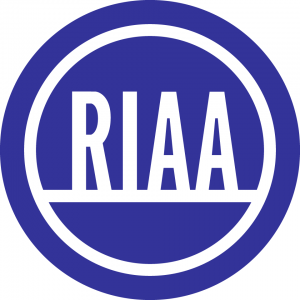Home Taping and the Music Industry Pie
 The RIAA have loosed another volley against the filesharing contingent that they believe are bleeding the profitability out of the music industry. The arguments are pretty solid: those who choose to download music illegally instead of paying for it through legal physical and digital channels are not enjoying the fruits of the people working in the industry without contributing to their livelihood. Bad people, right? Not proper music fans, right? Theft is insupportable, but there are questions of degree to be considered… From the RIAA’s press release:
The RIAA have loosed another volley against the filesharing contingent that they believe are bleeding the profitability out of the music industry. The arguments are pretty solid: those who choose to download music illegally instead of paying for it through legal physical and digital channels are not enjoying the fruits of the people working in the industry without contributing to their livelihood. Bad people, right? Not proper music fans, right? Theft is insupportable, but there are questions of degree to be considered… From the RIAA’s press release:
According to SoundScan, the top 10 albums in 2009 sold a total of 21 million copies, and the top 10 tracks totaled 36 million paid downloads. But the top 10 albums in 1999 totaled 55 million in sales. Even with digital track sales factored in, those top sellers fell by more than 50%. In the last 10 years, the major record labels’ direct employment in the United States fell from about 25,000 people in 1999 to less than 10,000 today – a drastic reduction of over 60% in people who enable the creation and development of new music.
In the music industry, it takes the investment of many peoples’ money, effort, and time to create the songs and albums we all get to choose from and enjoy. Since most acts never even reach the breakeven point in sales, music labels need to operate like venture capitalists and count on the successes to subsidize the continued development of many artists and releases that may never break out of the red. And it’s easy to ignore the harm being done when you’re only stealing one copy.
Stealing music is wrong. This is undeniable, but there is something about what the RIAA say – it’s easy for a punter to ignore the criminality of nicking one album at a time ‘just to hear it’, and so the solution to the problem has to be slightly more nuanced than cutting off the consumer’s internet connection, or suing individuals for vast damages in high profile cases. Legal, profitable channels of consumption have got to compete directly with the illegal, risky, but free-to-consume-unless-you-get-caught methods like filesharing and illegal streaming.
Picking on individuals makes the recording industry look like the aggressor rather than the victim, which they are not; they’re just trying to safeguard their sources of income, and their jobs. It’s hard to think of Edgar Bronfman’s kids going hungry, or Puff Daddy having to sell his jet to make the mortgage payments, but there are real people doing good work whose livelihoods are on the line. That said, progress is inevitable (see the video at the tail of the post), and the music industry has got to roll with the punches and capitalise on the massive innovation that’s happening in the digital sector if it is to thrive as it has in the past.
Another thing to consider is how much this piracy actually costs the industry. If the pirates couldn’t get hold of the music easily and for free, would they bother getting hold of it at all? Does the money not spent on records all get spent on eyepatches, stuffed parrots and WOW subscriptions, or does some of it come back to the music industry in other ways? Concert revenues are certainly up over the last few years, and some artists are making money against the trend of decline by using clever and non-traditional marketing methods, selling cool physical products, and using new outlets like Spotify and eMusic (to whom RouteNote will happily distribute your music, by the way) to boost waning physical revenues. Is it better then, for the industry to put a death-grip on sometime pirates who may also be gig-goers and box-set-buyers, and look backwards at the fantastic success they had with physical formats, or to look forward to an era when everything is digital and try to maximise it’s readiness and thus it’s profitability? Perhaps we’ll see things go full circle, and recorded music sales will tail off completely as we all go back to being regular concert goers, just like in the 1800’s…